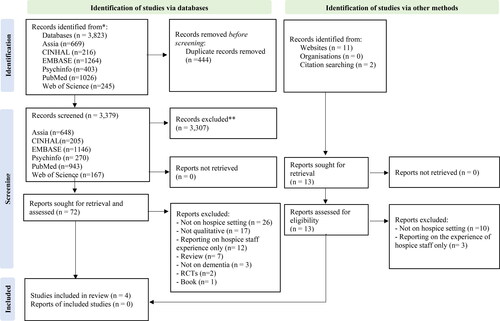Figures & data
Figure 1. PRISMA 2020 flow diagram (adapted from Page et al., Citation2021).

Figure 2. Expressed synthesis: Expectancy-disconfirmation paradigm in carers’ satisfaction with hospice dementia care (informed by Oliver., 1980).
Line of argument: The Expectancy-disconfirmation paradigm entails that when carers’ expectations of care were not matched by either hospice staff or the physical care environment of the hospice setting (e.g., whether the environment was not dementia friendly) there was a reduced level of satisfaction in carers with respect to the care received. On the contrary, when carers’ expectation was matched by the staff and or because of hospice setting being adequately dementia friendly, a more positive experience was reported from carers. Having good knowledge of palliative and end-of-life dementia care early on during disease trajectory and of dementia being a progressive condition, could help carers better handle the difficulty and unpredictability of end-of-life and palliative care.

Table 1. Meta-ethnography: Third order constructs.
